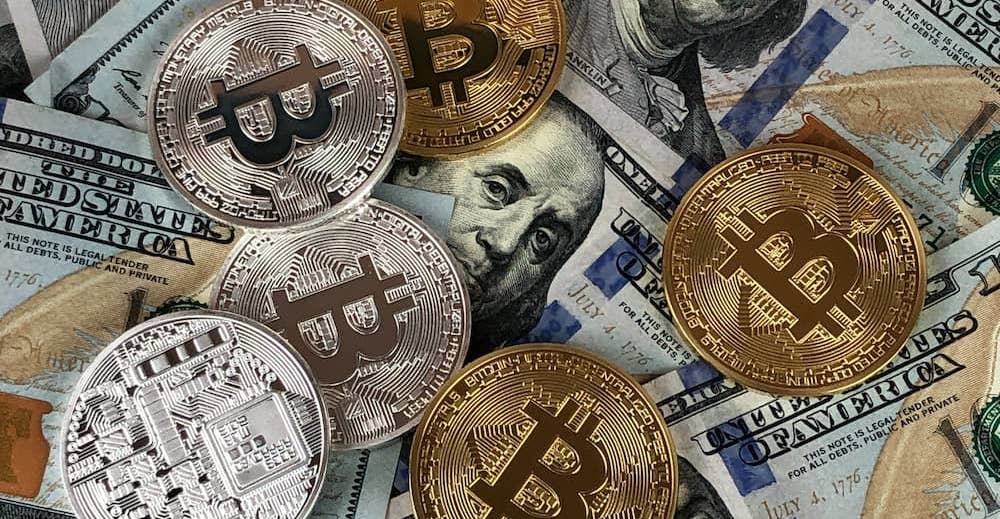Whether you want to call it a cryptocurrency, Cyber Yuan, or something else, the latest news of China’s venture into digital currency has the potential to change the way we use cash, forever.
In what is a world first (especially on this scale), the Chinese government is now minting cash digitally, with impacts that have potential influence covering everything from Chinese economy and regulation, to how we utilise and understand money across the world.
Whilst it does seem as if we already have virtual money (when it comes to Apple Pay, credit cards, WeChat Pay and wireless EFTPOS machines), these are just ways to move traditional currency in an electronic way – China is taking this process to the next level, by turning their legal tender into code.
What is Digital Currency Electronic Payment (DC/EP), aka Digital Yuan?
Digital Currency/Electronic Payment (DC/EP) – this is what China have called their new digital currency.
Whilst it draws many similarities to more familiar cryptocurrencies like Bitcoin, China has instead opted to design their new legal tender in a way that goes against a number of Bitcoin’s key features.
Whilst most crypto you are likely familiar with is decentralised and built on blockchain technology, claiming anonymity and a lack of control, China’s version of crypto strives to be the opposite. DC/EP is controlled by China’s central bank (the People’s Bank of China), which issues the currency. As a result, China’s government is expected to gain significant new measures of control over both its people and its economy. While crypto like Bitcoin provides more anonymity than traditional money, cyber Yuan provides none.
Ultimately, it is clear that DCEP will give the Chinese government capabilities that range from population and audience insights regarding spending and more, as well as information and data on everything from lifestyle to tracking.
How China Plans to Introduce Digital Yuan to the World
The Chinese government doesn’t plan on keeping this new currency to themselves – in fact, it seems as if they are on a mission to make DC/EP an all powerful crypto that has reach extending across the world.
In particular, Beijing is attempting to position the currency for international use, given that a design aspect of digital Yuan is that it is untethered to the global financial system.
According to Linghao Bao, analyst at Trivium China, this internationalisation of the renminbi is the long term strategic goal in place.
Only time will tell whether or not China’s proactive approach to tech and the world economy will pay off (and whether or not the US and governments around the world will follow suit with their own currencies).
The Product Development and Testing of Digital Yuan So Far
The Chinese government isn’t playing around when it comes to implementing their new currency. While there have been false starts and incorrect reports suggesting that DCEP would have seen a release as early as November of 2020 (and even earlier), more recent reports indicate that digital Yuan has entered trial testing in areas across China.
More specifically, China has begun testing and gathering data on digital Yuan in selected cities – when rolled out, it is planned that users will be allowed to download electronic wallets to their bank cards, thus resulting in a seamless implementation where users can transfer money and make payments.
With these digital Yuan changes implemented, China will be even closer to (what looks like) their goal of becoming entirely cashless. In 2019, 4/5 payments in the country were already made through online transaction tools WeChat Pay and Alipay – once their digital Yuan is implemented, it is likely that electronic payments will finally push traditional cash out of the picture.
China’s Involvement with Cryptocurrencies More Broadly
When it comes to China and cryptocurrencies like Bitcoin and Ethereum, there have been intriguing developments regarding regulation and involvement of both the Chinese government, and Chinese companies.
For example, early March of 2021 saw Chinese tech giant Meitu make a significant investment of around $52 million AUD into crypto, including significant amounts of Bitcoin ($23.5 million AUD) and Ethereum ($28.7 million AUD). They have since gone on to almost double these investments, now holding $100 million USD in BTC and ETH.
The reasoning behind the decisions of these investors included diversifying cash holdings, looking forward to interest and appreciations in value, and embracing a technological revolution.
Chinese leadership, on the other hand, have a considerably less positive approach to crypto as we know it. They do not recognise crypto as legal tender, their banking system is not accepting crypto or providing services for it, and they have introduced a number of restrictions surrounding crypto. In particular, they have made Initial Coin Offerings (ICOs) illegal, in turn hindering the business of crypto trading platforms and discouraging the mining of Bitcoin.
Despite these limitations, there are still crypto offerings based throughout the country. Most notably, many believe that China based crypto company NEO has the potential to see immense success – this is thanks to it being a centralised, regulator friendly blockchain based platform that supports its own crypto.
Frequently Asked Questions About DCEP and Crypto in China
What Cryptocurrency does China use?
Chinese governing bodies are currently in the process of developing the countries’ own centralised digital currency, often referred to as ‘Cyber Yuan’. This currency is a world first, with plans for implementation as soon as 2021.
Where can I buy China Cryptocurrency?
While you can’t yet buy China’s official digital currency, people in China are able to buy, hold and sell Cryptocurrencies with popular exchanges like Coinmama and CEX.io.
Is China Developing a Cryptocurrency?
In recent years, Chinese leadership have been developing their own digital currency called DC/EP – this is a centralised, controlled form of digital currency that will be seamlessly integrated into the Chinese economy and worldwide markets.
Is Cryptocurrency banned in China?
While Crypto isn’t banned in China, significant restrictions and a lack of institutional support mean that getting crypto is difficult. With this being said, you are allowed to buy, hold, and sell crypto in China.


